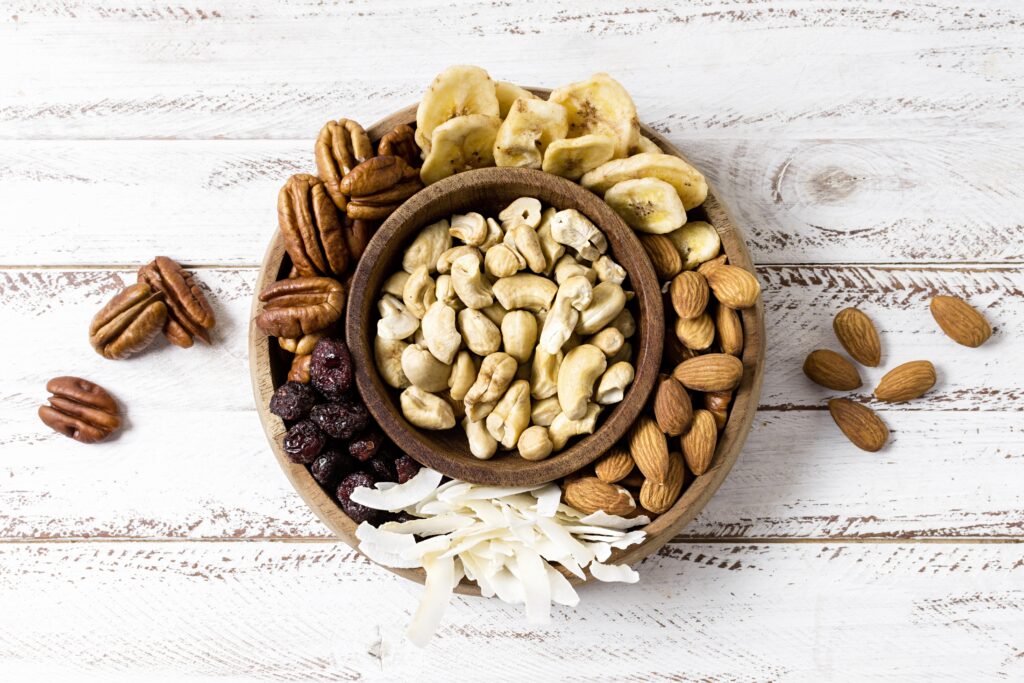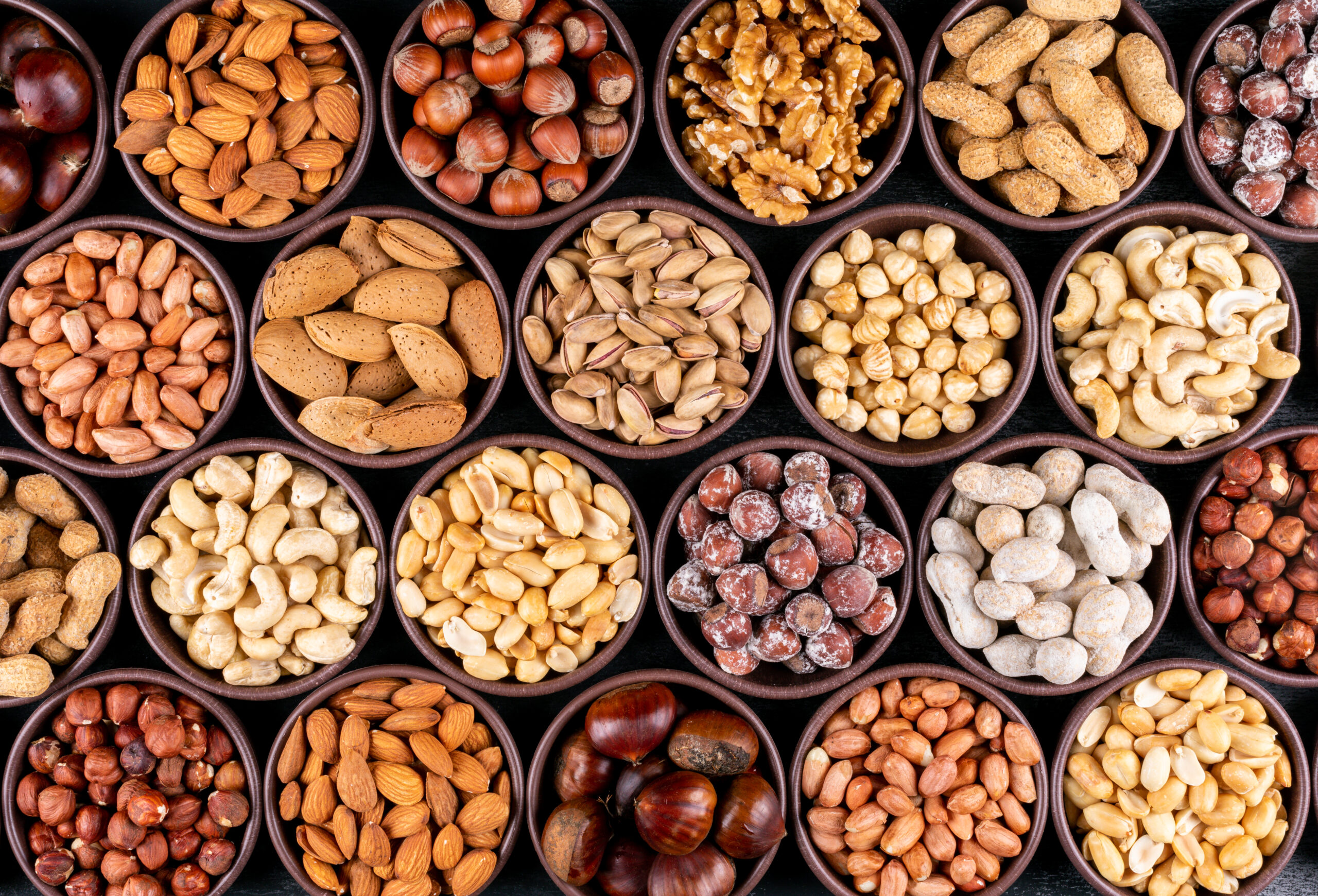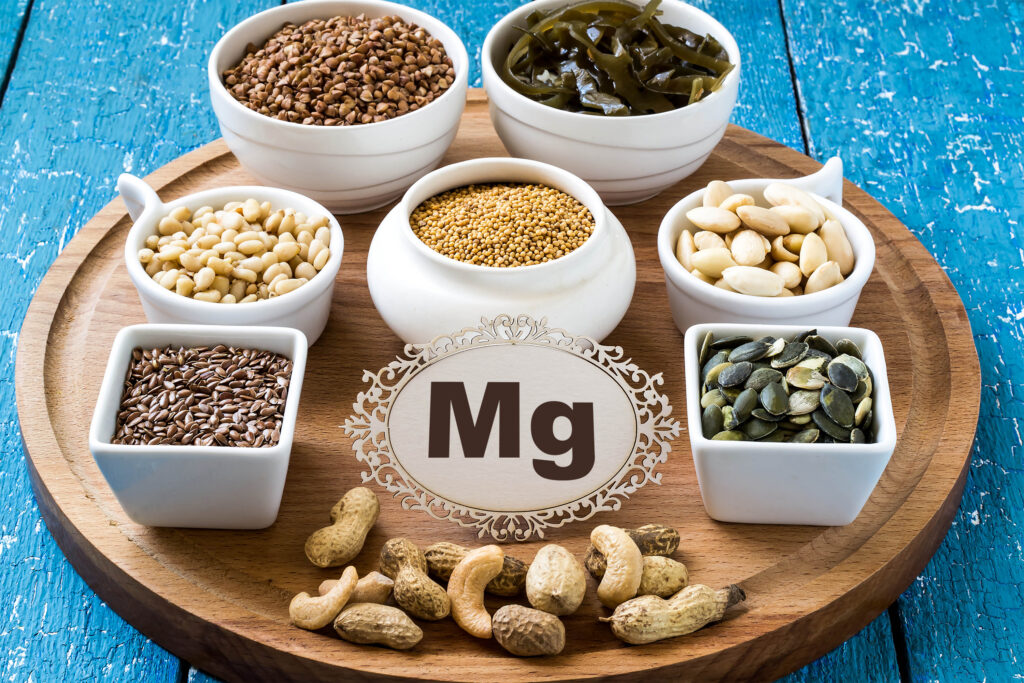
The Recommended Dietary Allowance (RDA) for adults 19-51+ years is 400-420 mg daily for men and 310-320 mg for women. Pregnancy requires about 350-360 mg daily and lactation,
310-320 mg. The Tolerable Upper Intake Level is 350 milligrams from supplements only. High dose supplements can lead to diarrhea, nausea, and cramping in some people. Extra magnesium from food is safe because the kidneys will eliminate excess amounts in urine.
Signs of deficiency include:
Fatigue, weakness, Poor appetite, Nausea, Vomiting, Numbness or tingling in skin, Muscle cramps, Seizures, Abnormal heart rate.




Dark chocolate is very rich in magnesium, with 64 mg in a 1-ounce (28-gram).its beneficial for heart health, as it contains flavanols, which are powerful antioxidant compounds that prevent “bad” LDL cholesterol from sticking to the cells lining of our artries.
The avocado is an incredibly nutritious fruit and a tasty source of magnesium. One medium avocado provides 58 mg of magnesium, which is 15% of the RDI. avocados are an excellent
source of fiber. In fact, 13 of the 17 grams of carbs in an avocado come from fiber, making it very low in digestible carbs. Eating avocados can reduce inflammation, improve cholesterol levels and increase feelings of fullness after meals.
Adding 1 cup of cubed avocado to your salad or sandwich at lunch, and you’ll easily consume 11 percent of the DV of magnesium, according to the USDA. Avocados are also rich in healthy fats, according to the Academy of Nutrition and Dietetics, which makes them a concentrated source of calories. So keep portion size in mind when you’re enjoying this healthy delight.
Nuts are nutritious and tasty. nuts that are particularly high in magnesium include almonds, cashews and Brazil nuts. 1-ounce (28-gram) serving of cashews contains 82 mg of magnesium, or 20% of the RDI. Nuts improve blood sugar and cholesterol levels in people with diabetes.



3.5-ounce (100-gram) serving has 53 mg of magnesium, which is 13% of the RDI (22).
One serving also provides 10 grams of protein and 10% or more of the RDI for calcium, iron, manganese and selenium. tofu may protect the cells lining your arteries and reduce your risk of stomach cancer.
Many seeds including flax, pumpkin and chia seeds contain high amounts of magnesium.
Pumpkin seeds are a particularly good source, with 150 mg in a 1-ounce (28-gram) serving.
Also help with stress, sleep, and mood not only due to magnesium, but also tryptophan. Try sprinkling them on top of salads, smoothies, or blending into a seed butter.
WhatsApp us